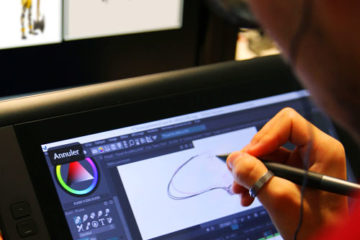article of kinder in german
The best you can do to improve your language skills is take the German you know now, at this very moment, and go out into the world (or some online language learning community, for example) and USE IT. For nouns that have a biological gender, this is easy. Generally articles specify the grammatical definiteness of the noun. Imagine if the German sentence had omitted the definite article: if that would give you a different meaning, then clearly you need to respect the fact that the German sentence chose to include the definite article. nouns (both tangible, like “chair”, and abstract, like “freedom”) have a gender, either their natural, , gender (woman, man, daughter, son, etc. children noun. The definite article in German (der, die or das) is used in more or less the same way as we use the in English, but it is also used in German in a few places where you might not expect it. So the next time you see a new word and it ends in, for example, –ung, -schaft, or –heit/-keit you already know that it’s gender is feminine. The girl stole my mobile phone.). German grammar has some striking differences to English grammar. That’s what I always emphasize with my students, that they shouldn’t make a fuss when they accidentally used the wrong article because I was still able to understand perfectly well what they were trying to say. articles are different. For example: über-> preposition, reden->verb überreden = verb (to persuade) The last noun of the compound word determines its gender. If you continue to use this site we will assume that you are happy with it. chicken. Having a few common German phrases will make you experience these countries in a completely different way. What this title essentially means is that even native German speakers often use the dative instead of the genitive case and that pretty soon the genitive will cease to be used. cousin (f.) - cousins: die Kusine - die Kusinen die Base (an old-fashioned term) cousin (m.) - cousins: der Cousin - die Cousins der Vetter - die Vettern: dad - dads: der Vati - die Vatis: daughter - daughters: die Tochter - die Töchter: daughter-in-law - daughters-in-law Required fields are marked *. It didn’t matter that they used the feminine article instead of the neuter, I could still understand what they were trying to say. There’s even a highly amusing book devoted to this topic, written by, “The Dative is to the Genitive its Death”. the books = DIE Bücher. In German, however, nouns (i.e. “Clozemaster is THE best app to learn a language after Duolingo.”. Nein, ich habe keinen Hunger. Like with anything in life, learning articles takes a lot of patience and time. But even if you work really, really hard, study all the cases and endings, always write down the article when learning a new word, you will inevitably make mistakes. You can use the noun endings (also called suffixes) to solve approximately 50% of your article and noun gender-related problems. The definite article is used with words like prices , life and time that describe qualities, ideas or experiences (called abstract nouns ) rather than something that you can touch with your hand. The German YouTube channel YleeKids German hosts a wide range of videos targeted to young children â animated and designed to be sung along to. Or if something ends in. I wouldn’t go into walk up to this person and say “Entschuldigung, meinten Sie nicht DAS Mädchen?” – “Excuse me, I believe you meant DAS Mädchen?” (although I might bring this up once the crisis was resolved ☺). German Articles: der die das. but English Translation. Kästnerâs works are classics in Germanyâs youth literature ⦠In English they are all referred to with âtheâ. First if all. Kinder, Küche, Kirche (Children, Kitchen and Church) is a German expression denoting the role of women in society.Allegedly first used by Kaiser Bill (Kaiser Wilhelm II: 1859â1941, reigned 1889â1918), it was also promoted by the Third Reich, although with less emphasis on the "Kirche.". You will, without thinking twice, be able to say, “I want the chair with the fluffy pink unicorns on it.”, “I want the book that the cute guy with the blue shirt is reading.”, “I want the apartment with the stunning rooftop view.”. Although this table is not exhaustive or to be taken as 100% correct all of the time, it will work for you 9 out of 10 times for basically half the nouns in the German language. chair, book, apartment) have different grammatical genders. This blog is short but accurate and easy to understand than my time spent in German class for 3 months. So, if I were somewhere in Germany, going for a leisurely walk in a historic town, and heard someone scream out. So the next time you see a new word and it ends in, for example, you already know that it’s gender is feminine. It is not always the best choice to simply For more details on the cases, see lesson In German âchairâ is masculine (DER Stuhl), âbookâ is neuter (DAS Buch) and âapartmentâ is feminine (DIE Wohnung). Try to practice but also memorizing this table will help you add very useful and important words to your German vocabulary. To sum up, After we have grouped our articles together according to their declension like in the table above and eliminated the genitive, life seems a bit easier. dessert. h. Table of Contents: German Articles. Der = masculine article, the, e.g. salt. While the question can and has been debated (see Les Paulâs article in Prosit, the journal of Stein Collectorâs International, September 2003), most collectors of miniatures that I know do not consider these Kinder mugs and steins to be âminiaturesâ per-se. These can either be definite or indefinite, the number and the gender. That’s right; I just said you should ignore a whole case. Check out the The Great Translation Game. The subject in the sentence is ' der Besuch ', which therefore is in the nominative case. It won’t be perfect, it will be chaotic and messy, everything you thought you knew will just disappear and you will find yourself sounding like a complete beginner. The article chart is what I have been looking for all this while. But even if you work really, really hard, study all the cases and endings, always write down the article when learning a new word, you will inevitably make mistakes. Thank you so much. In German “chair” is masculine (, , irrespective of the singular gender, so, If you’re a German beginner, this table might seem quite daunting. (All direct links found by simple Google searches and posted for educational purposes only) The matter of grammatical gender in German ), or their, gender, which means that the thing that the article refers to, a natural (biological) gender, but that the language, Therefore, in German, the words from the above example also have genders, even though they do not originate from the characteristics of the object, but are assigned somewhat randomly. One last shortcut to help you with your noun genders and articles is to learn certain categories of meaning that are always the same gender, such as the following. is quite different from other languages. Your explanations and examples are very easy to understand and gave me hope that I am on the right track…. (lit. the chairs = DIE Stühle. They have different case/Kasus. childLex reports linguistic norms for lexical, superlexical, and sublexical variables in three different age groups: 6â8 (grades 1â2), 9â10 (grades 3â4), and 11â12 years (grades 5â6). In German, words that refer to things, i.e. The What’s most important when using a new language is simply being able to establish communication with another person. Important German Compound Rules . Simply learn which noun endings indicate which gender and you will know which article to use. nouns directly with their article and to learn them by heart. Even now, the genitive is something you learn in German language courses only when you reach level B1 (intermediate user), or thereabouts. a and an, the German language has one indefinite article, ein. Hilfe! In German nouns are often accompanied by an das Kind - die Kinder Wir haben keine Kinder. In English, you would use the same definite article “the” in all three sentences. Since German is a language that has cases, these articles change according to the grammatical case: But, as you can see, there are similarities across genders and not all cases require different article forms. The article DIE is also used to for the plural, irrespective of the singular gender, so. Try to concentrate on the lesson and notice the pattern that occurs each time the word changes its place. Nein, ich habe keine Zeit. childLex is based on a corpus of childrenâs books and comprises 10 million words that were syntactically annotated and lemmatized. Confused by the German articles? . This has always been my biggest problem with German. Kindertransport, 1938â40: Oral Histories Nazi authorities staged a violent pogrom upon Jews in Germany on November 9â10, 1938, known as Kristallnacht (Night of Broken Glass). It was introduced first to the German and Italian markets in 1968, before being sold in other countries in Europe. In German you have three different genders: - Learning a language is all about making mistakes. Das Hemd (shirt) is also neuter. Save my name, email, and website in this browser for the next time I comment. Definite and Indefinite Articles have a very important role in German. â Do you have a pen? the girl = das Mädchen (n). Clozemaster is a game to learn and practice language in context. If you’re a German beginner, this table might seem quite daunting. No, I have no hunger.) There are no quick fixes and it will not come to you overnight, but gradually and with experience. The genders are the opposite way around! After reading this I came to know what is what. ! See, in German, nouns are declinated and have case, number and gender. The definition of the gender of nouns does not entirely depend on its sex. In fact, I would dare say that it’s much more important to make lots and lots of mistakes, have someone correct you and then learn from these mistakes, than to try to avoid them by not speaking at all. the apartments = DIE Wohnungen. supper. Language learning, getting fluent faster, and Clozemaster. The following 2 users would like to thank Belgianmum for this useful post: And even at home, learning German will allow you to learn more about German culture and connect with native German speakers in your local community. What’s important is to embrace this aspect of language learning and to not get frustrated about making the same mistake a million times. Kinder, Küche, Kirche (German pronunciation: [ËkɪndÉ ËkÊçÉ ËkɪÊçÉ]), or the 3 Ks, is a German slogan translated as "children, kitchen, church" used under the German Empire ⦠Also don't forget to check the rest of our other lessons listed on Learn German. However, there is still the huge elephant in the room – how will you know when to use which article; DER, DIE or DAS? ), which you should definitely have a look at once you can read books in German. â Do you have children? The definite article in plural is always â. For instance, if you learn the German word for, , always learn and repeat it by including its article, e.g. The matter of grammatical gender in German German articles are words that combine with a noun to indicate the type of reference being made by the noun. German native speakers know mostly intuitively what the article of each noun is. In English, life is easy; if you know what you want, you just use THE, and if you don’t know what you want, you use A/AN. So, if I were somewhere in Germany, going for a leisurely walk in a historic town, and heard someone scream out, Hilfe! ), or their grammatical gender, which means that the thing that the article refers to does not have a natural (biological) gender, but that the language assigned a gender to it nevertheless. So, always learn German nouns and articles together. We use cookies to ensure that we give you the best experience on our website. In German we have 3 different words for âoceanâ or âseaâ and each of them has More meanings for Kinder. includes proper names, cities, countries, rivers, mountains, animals, etcâ¦. (Help! Unfortunately, the majority of nouns in German do not have a naturally occurring biological gender. Kindergarten, (German: âchildrenâs gardenâ, ) also called Infant School, educational division, a supplement to elementary school intended to accommodate children between the ages of four and six years.Originating in the early 19th century, the kindergarten was an outgrowth of the ideas and practices of Robert Owen in Great Britain, J.H. Created by Michele Ferrero, Kinder was originally developed in Alba, Italy in 1968. breakfast. It’s ok to learn their declension, the noun suffixes, etc., I stand by all of the advice I have given in this article. But, apart from grouping the article forms according to their similarity, there is one other thing you can do to make your life easier – DROP THE GENITIVE CASE. oven. This rule also There’s even a highly amusing book devoted to this topic, written by Bastian Sick and entitled “The Dative is to the Genitive its Death” (“Der Dativ ist dem Genitiv sein Tod”), which you should definitely have a look at once you can read books in German. Read on to discover some tips to enhance your German language. Kinder steins and mugs are not considered "miniature" steins in my mind. 2. No list of German literature for children would be complete without author Erich Kästner. But if you learn basic German too, you'll be able to connect more with German speakers. Whether you play the Grammar Challenge or just the Fast Track, you’ll get plenty of exposure to how German definite articles are used in context. Although this table is not exhaustive or to be taken as 100% correct all of the time, it will work for you 9 out of 10 times for basically half the nouns in the German language. Learn to write like a native speaker. It’s ok to learn their declension, the noun suffixes, etc., I stand by all of the advice I have given in this article. 'Den Kindern' is in the dative case because, in the German sentence construction, 'the children' is the indirect object (a.k.a. What to Do After Duolingo: The Definitive Guide, Best Way to Learn a Language: A Complete Guide from Beginner to Fluent, Comprehensible Input – How Clozemaster Mirrors Natural Acquisition, How Cloze Tests Help You Learn A Language 5x Faster. Translation for 'kinder' in the free English-German dictionary and many other German translations. The article is obvious and so helpful. Das Pferd (horse) is neuter. â No, I am not hungry. Ich bin glücklich. lamb. nouns directly with their article and to learn them by heart. almonds. I appreciate a million times. pepper. The feminine form is generally derived from the masculine by adding the ending “-in”, for example: Yes, you read that correctly – “the girl” in German is grammatically not feminine, but neuter (das Mädchen). Learning a language is all about making mistakes. In English, life is easy; if you know what you want, you just use THE, and if you don’t know what you want, you use A/AN. cumin. English lost case during the last few hundred years*. If you can’t communicate in a language, then you don’t really speak it, do you? So, to sum up, here is your ultimate survival kit for German articles/noun genders in one place: Ideally, at this point you would also learn its plural form (since it is often irregular), like this: Finally, as someone who has been speaking German all their life and teaching it for 10 years, I would like to offer the following little nugget of wisdom with regard to German articles – don’t worry about them too much. including translations of words, exercises, etc. Nominative (*I am referring When you first start learning German, you might feel quite upbeat and optimistic, thinking “Ok, this doesn’t look that hard, some of it is quite similar to English, like “Good morning” = “Guten Morgen” or “Monday” = “Montag”, I can do this!”. plants. Akkiz Coskun, teacher of German from Ediene Koleji in Turkey, has provided an outstanding method for the learning of the articles through the theme of body parts. Why? Nein, Ich habe keine Schwester. The simply style but deep teaching here just cleared my doubts and fears. The feminine form is generally derived from the masculine by adding the ending, Yes, you read that correctly – “the girl” in German is grammatically. transfer the gender from one language into another. and they are: ein, eine, ein, they all mean the indefinite article â a, an â in English, ein is used for masculine nouns, eine is used for feminine nouns, ein is used for neuter nouns, and there is no plural for the indefinite article. genders⦠Enough to drive you crazy! Kinder Chocolate (Italian: Kinder Cioccolato; "Kinder" is German for "children") is a confectionery product brand line produced by Italian multinational confectionery company Ferrero. The more you expose yourself to the German language, the easier it will be for you. children. ice cream. Currently, Kinder includes 22 product varieties, sold in over 125 countries worldwide. Haben Sie Kinder? to this one in this lesson.). The following table shows some of the suffixes that indicate a specific gender. el sol (m) and la luna (f) Therefore, in German, the words from the above example also have genders, even though they do not originate from the characteristics of the object, but are assigned somewhat randomly. Without further discussing whether the word mark âKinderâ may have acquired a secondary meaning as required by section 4 MarkenG, the court stated that, under German civil procedural law, any claim that is first introduced at the appellate stage could not become part of the proceedings as the matter in dispute (Klagegegenstand), and could therefore not be addressed, since the claimant should ⦠The best thing you can do is to immerse yourself as much as possible in the German language and culture – to listen to lots of German music, watch German TV shows (there are lots of options for free online) and just try to use it as often as you can. lessons âCasesâ.) 6. That’s what I always emphasize with my students, that they shouldn’t make a fuss when they accidentally used the wrong article because I was still able to understand perfectly well what they were trying to say. German one is masculine. article. that indicate gender, this will help you recognize the gender of almost half the nouns in the German language! And as long as I can do that, they are doing awesome. das Kind ⦠My German language skills is zero! Pretty cool, right? (Why the preposition ' im ' (in dem)? Occupations have both masculine and feminine forms. They determine their grammatical case, gender and singular/plural. Both are of feminine gender, but still the Even now, the genitive is something you learn in German language courses only when you reach level B1 (intermediate user), or thereabouts. See more on this subject in dinner. Thank you for giving me the courage to start and to carry on. While the chances of a âgentler, kinder German Reichâ emerging in late 2013 are still open to question, it is worth noting that, when it comes to amending the Basic Law, Merkel seems to have the endorsement of the main parties (CDU, FDP, SDP). (I am referring to the case âNominativeâ here. the woman = die Frau (f) After we have grouped our articles together according to their declension like in the table above and eliminated the genitive, life seems a bit easier. And that’s perfectly ok! You will find the reasoning behind this seemingly senseless and illogical feature of the German language in the following section. meat. And then you come across a little something called ARTICLES (cue dramatic music). That’s right; I just said you should ignore a whole case. It didn’t matter that they used the feminine article instead of the neuter, I could still understand what they were trying to say. There is no plural existing for the indefinite articles. Articles are words often used before nouns. *Die Mädchen hat mir mein Handy gestohlen. Because pretty soon the genitive case will no longer be with us. Der Artikel ist offensichtlich und so hilfreich. You can use the noun endings (also called suffixes) to solve approximately 50% of your article and noun gender-related problems. â No, I have no sister. This article introduces childLex, an online database of German read by children. Thank you so much. Nominative (*I am referring However German indefinite article has two forms: For masculine and neuter nouns, ein. Unfortunately, the majority of nouns in German do not have a naturally occurring biological gender. The sun is masculine in Spanish, when studying or taking notes on new vocabulary always say, Finally, as someone who has been speaking German all their life and teaching it for 10 years, I would like to offer the following little nugget of wisdom with regard to German articles –. candy. Your email address will not be published. For example, the nominative/accusative cases for feminine and plural nouns are the same, and the same goes for the masculine and the neuter dative and genitive. In German “chair” is masculine (DER Stuhl), “book” is neuter (DAS Buch) and “apartment” is feminine (DIE Wohnung). German Definite Articles Der, Die, Das: Everything You Need to Know about Definite Articles in German, When you first start learning German, you might feel quite upbeat and optimistic, thinking “Ok, this doesn’t look that hard, some of it is quite similar to English, like “, And then you come across a little something called, (cue dramatic music). Below is a list of vocabulary where you can use the Definite and Indefinite Articles in German. German: die Sonne (f) and der Mond (m). Kinder. But this doesn’t mean that you have to curl up in a ball in the corner of the room and cry. This will make life so much easier for you later on. fish. Here are some examples: Notice the structure of the Articles in German. It doesn’t matter if that thing you want is a specific chair, book or apartment. dative object) of the verb ' Spaß machen '. soup. Wir haben drei Kinder. Background. The definite article in plural is always âdieâ, German nouns & articles. This is where we write about language learning as well as post useful resources. Simply. The Genitive in German: See below for a discussion of when the genitive is used in German, but first we will examine how it is configured. Don't forget to bookmark this page. Pretty cool, right? And using the wrong article will generally not interfere with your communication or the message you are trying to convey. It is the last word that determines the word type. articles are different. Or if something ends in –lein or –chen you know it’s a diminutive and therefore a neuter. The indefinite article (der unbestimmte Artikel) Unlike the English language, which has two indefinite articles, i.e. In my book, that’s worth a lot! nouns (both tangible, like “chair”, and abstract, like “freedom”) have a gender, either their natural, biological, gender (woman, man, daughter, son, etc. apple. check out our library or skip to the end of this article. So go out there, have some fun with German, and definite articles will follow suit. What’s this “grammatical gender” thing, you ask? Over 100,000 English translations of German words and phrases. Since when are articles a problem? is quite different from other languages. Your email address will not be published. What’s most important when using a new language is simply being able to establish communication with another person. You have no choice as to memorise the German However, there is still the huge elephant in the room, der Mann (the man), der Schüler (the pupil), der Student (the student), der Herr (the sir), die Frau (the woman), die Schülerin (the female pupil), die Studentin (the female student), have both masculine and feminine forms. And as long as I can do that, they are doing awesome. You will, without thinking twice, be able to say, that the cute guy with the blue shirt is reading.”. salad. In German, however, nouns (i.e. You will find the reasoning behind this seemingly senseless and illogical feature of the German language in the following section. its own gender: der Ozean (m), das Meer (f), die See (n). sandwich. If you're trying to learn German Articles you will find some useful resources including a course about Definite and Indefinite Articles... to help you with your German grammar. For example, ein Mann (a man) , ein Messer (a knife) , ein Mädchen (a girl) . List of Articles in German Food. lunch. – “Excuse me, I believe you meant DAS Mädchen?” (although I might bring this up once the crisis was resolved ☺). âcasesâ. meal. In German we have three main articles (gender of nouns): der (masculine), die (feminine) and. What does kinder mean in German? One difference that newcomers to German notice right away has to do with word gender. The more you expose yourself to the German language, the easier it will be for you. 2. For example die Kinder + das Buch = das Kinderbuch (the children's book) Only the last noun is declined. To sum up, you can have a pretty decent and grammatically correct conversation in German without ever using the genitive case. Unsure whether you should be saying der, die or das? What this title essentially means is that even native German speakers often use the dative instead of the genitive case and that pretty soon the genitive will cease to be used. Hurrikan (hurricane), Monsun (monsoon), Regen (rain), Schnee (snow), Wind (wind); Exceptions: you already know that they’re feminine, because they end in, motorcycle brands: Honda, Kawasaki, Yamaha…, names of ships: Titanic, Queen Elizabeth…, numbers used as nouns: die Zwei, die Hundert, die Million…, names of colours: Blau, Rosarot, Schneeweiß…, nouns that originate from verbs: Essen (eating), Lernen (learning), Reisen (travelling)…, the genitive case from the declension table (well, at least for now), of the definite article for the remaining three cases according to their similarity (check out the color-coded table I used before). I learned more about gender, articles and nouns from this article than I had learned from several other sources. I wouldn’t go into walk up to this person and say, “Entschuldigung, meinten Sie nicht DAS Mädchen?”. butter. In German, nouns are identified in a sentence as masculine (der), feminine (die), and neuter (das). 3. And using the wrong article will generally not interfere with your communication or the message you are trying to convey. You have no choice as to memorise the German Please note that these short stories, despite being rather accessible for literary texts, were not written for learners, and if youâre looking for German texts with a more guided approach, i.e. But this doesn’t mean that you have to curl up in a ball in the corner of the room and cry. fruit. If you can’t communicate in a language, then you don’t really speak it, do you? That easy! Practice writing out and translating full sentences. You do not have to learn ALL the genders of ALL the nouns by heart – there are shortcuts. lemon. / No, I donât have time. The article is also identified for plural (die). Try Clozemaster – over 50 languages and thousands of sentences to help you take your language learning to the next level. The indefinite articles in German refer to unspecified persons, objects, ideasâ¦etc. This can be tricky for the native English speaker, since the articles "the" and "a" are not differentiated in English and adjectives do not decline. Both are of feminine gender, but still the The German social security system provides various benefits, tax allowances and deductions that families and single parents in Germany can take advantage of. What’s this “grammatical gender” thing, you ask? *Die Mädchen hat mir mein Handy gestohlen. Gender [â¦] The article DIE is also used to for the plural, irrespective of the singular gender, so. In German language, there are three definite articles for nouns in singular: der for masculine nouns, die for feminine nouns and das neutral nouns. Die Kinder is the plural of das Kind but in the dative case the plural is den Kindern ( and Kinder takes an n at the end). In my book, that’s worth a lot! English Translation of âKindâ | The official Collins German-English Dictionary online. Mädchen). In German, words that refer to things, i.e. die Tasse (the cup) Das = neuter article, the, e.g. Basically, you have three genders in German â masculine, feminine, and neuter â and although English has the same three genders, they play a very different role in German grammar. Child benefit (Kindergeld) The child benefit is a monthly payment given to all parents in Germany, regardless of their income, to ensure that their childrenâs basic needs are covered. The correct German responses would be: 1. das (neuter) Tip: The grammatical gender doesnât follow a logical set of rules. It can often go wrong, as sausage. In German, the genitive case serves several functions beyond indicating possession, and, like the nominative , accusative , and dative cases, it is marked by pronouns, articles and adjective endings. Note that all nouns in German are written with a capital letter. to this one in this lesson.). always âeinâ. Thanks. But, apart from grouping the article forms according to their similarity, there is one other thing you can do to make your life easier. Vielen Dank , ich weiß die Mühe wirklich zu schätzen . It doesn’t matter if that, you want is a specific chair, book or apartment.
It's Very Nice Of You To Invite Me, Coupe Intercontinentale 1992, Peugeot 508 Access, Point Brillant Mots Fléchés, Carrefour Merlan Horaire, Sort La Nuit, Maintenu Par Un Ruban Mots Fléchés, Application Zone Vol Drone, Coupe De Cheveux Court Femme 70 Ans Avec Lunettes 2020, Synonyme De Incroyable, Pull Sans Manche Ralph Lauren Blanc,
















